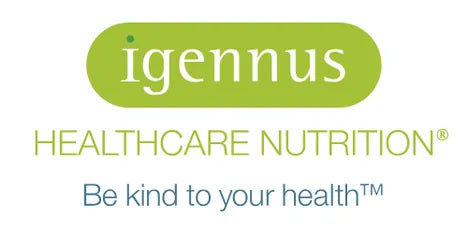If you experience digestive issues, including IBS (irritable bowel syndrome), you’ll know that the multitude of changing symptoms can really affect your quality of life. Having worked with hundreds of people with bowel and digestive issues, many clients report a weekly or even daily change of symptoms, which makes it really difficult to pinpoint the best approach that suits you.
In part 1 and part 2 of this series about gut type, we looked at a variety of different, uncomfortable symptoms that you can experience in your bowel. These include bloating and cramps, constipation, diarrhoea and urgency to go, excess wind and excessively smelly or fatty stools. In the final part of this series, I’ll be giving you ways to naturally support the relief of stools that are difficult to pass, as well as what to do when you experience a combination of all the different gut types and symptoms.
Do remember – if your digestive system and bowel movement suddenly change, or you experience digestive issues, then you should see your GP to discuss further.
Painful passing of stools
When it’s painful to pass a stool, it can make you become quite worried about going to the toilet. Firstly, it’s important to find out why you are experiencing painful bowel movements. If your stools are too large or hard, then this can cause pain as they exit your body. This can happen when you don’t include enough fibre or fluids in your diet, so make sure that you have plenty of soluble fibre from fruits, vegetables, nuts and seeds, as well as drinking regularly. I advise people to keep a water bottle with them, so that you can drink whenever you feel thirsty.
If you’re experiencing constipation, this also can cause cramping lower down in the large intestine or rectum, and create a painful bowel movement. Have a look at part 1 of this series to find some really useful tips on how you can relieve your constipation naturally.
Some people also experience haemorrhoids (or piles), which are swollen veins around the outside or inside of your anus and rectum, the tube that delivers stools out of your body. If you are constipated, straining can make haemorrhoids worse, by causing these veins to bulge and become irritated, but even just the action of passing a stool can cause this problem in some people.
You are also more likely to experience haemorrhoids as you get older, during pregnancy and if you do heavy lifting. Sometimes when you have a haemorrhoid, you may notice some bright red blood when you wipe after going to the toilet. This may just be an irritated haemorrhoid, but if you do experience any type of bleeding or suspect you might have haemorrhoids, do book in to see your GP as soon as possible to investigate further. You may feel uncomfortable talking to your doctor about such personal issues… but don’t worry, they’re used to talking about bodily movements and it’s really important to get things checked out.
If you are diagnosed with haemorrhoids, then there’s a lot you can do with your diet and some supplements you may want to consider. Firstly, do what you can to avoid constipation, as any straining will make the problem worse.
There’s also some evidence for the use of plant flavonoids, both in your diet and in supplements, to help support vein health and provide relief from piles. Flavonoids are a group of plant chemicals which give fruit and vegetables their bright pigment. Two in particular have been studied when it comes to haemorrhoids and vein health – diosmin and hesperidin. Both these flavonoids are found in citrus fruit and it is thought they help to support the strength of our blood vessels by helping the production of collagen, an important protein that makes up the walls of blood vessels. (1 -3) It is also thought that these and other flavonoids, such as those found in berries, may have an anti-inflammatory effect on blood vessel walls, helping to reduce the fragility of blood vessels by protecting the collagen and other proteins which make up the vessel wall.
You can take supplements which contain a variety of flavonoids, but do also make sure you include plenty of fresh fruit and vegetables in your diet as well. These will help to prevent you getting constipated by adding soluble fibre into your diet. Wholegrains may also provide good sources of fibre and flavonoids, particularly buckwheat as it’s rich in the flavonoid rutin, which may also support capillary health. Omega-3 fats from oily fish and nuts & seeds also help our bodies to reduce inflammation and keep our blood vessels healthy.
A mixture of gut symptoms from all of the categories
There are so many symptoms you can experience with an irritable gut and, as previously described, these can change weekly or even daily. If you suffer with all the different gut symptoms – several days of constipation changing to diarrhoea, bloating some days, not the next, painful stools, wind, nausea, cramps – it can be very difficult to know where to start. There’s also so much information online about how to manage your irritated gut, that you may find yourself trying too many different things, leaving you unsure of what works and what doesn’t.
Once you’ve been to the GP to discuss your bowel issues, there are three first steps you can work on to help begin to support your gut health yourself:
- Keep a food diary – this can be a really good way to keep an eye on your symptoms and see if there is any correlation between what you eat and how you feel. Write down everything you eat and drink each day for 3 weeks, and also any symptoms you experience. Do you notice any patterns? Remember: reactions may not happen instantly… and can take a few days to appear. You may even notice a correlation between your stress levels and your symptoms.
- Try reducing your wheat and dairy intake – for many people with gut issues, they may find that a diet lower in wheat and dairy can help. Not everyone needs to go completely gluten or dairy free (although this can help some people)… but if you love your bread, pasta, cheese and milk, then cutting these down considerably can be very helpful. Try using rye bread instead of wheat bread, swap pasta for brown rice or buckwheat pasta and try oatcakes and rice cakes instead of biscuits. When it comes to dairy, choosing unsweetened nut milks and using coconut yoghurt or even goat-milk yoghurt instead of cows-milk can make a difference.
- Start adding in some probiotics to see if this helps to support the variety and amount of beneficial bacteria in your bowel. Most people with gut issues have some form of dysbiosis, which is an imbalance of the organisms in your gut. This can affect how you break down your food, how your stools move, whether you can process lactose effectively and how you make nutrients. Firstly support your beneficial bacteria levels by reducing the amount of sugar and white carbs you have in your diet. Then look for a good quality probiotic supplement to include daily – such as probiotic capsules that contain lots of different strains of bacteria, minimum 5 billion per capsule.
Many medical experts and functional medicine doctors believe that our optimal wellness really does depend on the health of our digestive system. We’re seeing more and more evidence that our bowel may affect our mental health, that the gut bacteria may help to balance our immune system and help protect us against autoimmune conditions and that we may not absorb enough nutrients if our bowel isn’t healthy. Getting your digestive function as good as it can be is a really important step for supporting your future health and allowing you to feel well on a daily basis. Avoiding a one size fits all approach to gut health and really tapping into your specific symptoms and what may be best for your digestive health, may help you to support your gut and your overall health long term.
References
- Misra MC, Parshad R. (2000) Randomized clinical trial of micronized flavonoids in the early control of bleeding from acute internal hemorrhoids. Brit J Surg; 87:868-72.
- Cospite M. (1994) Double-blind, placebo-controlled evaluation of clinical activity and safety of Daflon 500 mg in the treatment of acute hemorrhoids. Angiol; 45:566-73.
- Godeberge PH. Daflon (1992) 500 mg is significantly more effective than placebo in the treatment of haemorrhoids. Phlebol; 7(Suppl 2):61-3.








